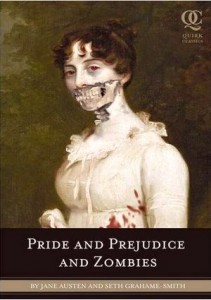You have no items in your cart. Want to get some nice things?
Go shoppingI experienced a revelatory and yet slightly embarrassing moment a few weeks ago. I was walking home with a good-looking boy from my creative writing class and we were discussing our latest submissions. When I told him that I was writing a poetry sequence based around a taxidermist’s workroom, he looked at me a little strangely. I tried to justify my macabre subject matter, claiming it was tasteful and artistic but he didn’t seem convinced; instead, he asked me whether I was in the habit of writing poetry about dead things, and, to my surprise, I realised that I was.
The conversation prompted me to go back to my earliest writing journals. I began to notice a pattern in my stories – each page was littered with misery, morbidity and death. I was shocked. I am, by nature, a happy person; I have never been one to dwell on the sorrows of life but have always tried to keep a positive outlook. I’m an optimist. I’m an animal lover. Anyone reading my journals, however, would think otherwise.

It got me thinking – why do our minds go to such dark places when we are thinking about interesting stories to write about? Why had I chosen to write something grisly when, in real life, the mere sight of blood makes me feel nauseous? Perhaps it’s the influence of those around me; misery loves company.
Crime fiction has never been more popular and it seems the British public love to read of murders most horrible; a recent survey conducted by the Crime Writers’ Association found that the average body count in crime novels over the last year was a whopping 8.38. Alongside the current media fascination with vampires and werewolves, it’s easy to see how one could equate the purely gory with interesting and popular fiction.
It’s easier to write with a grisly point of view. When I am trying to think about an event or situation that is going to alter my characters’ lives, I automatically think of something grim – the death of a loved one, a crippling blow of some kind. You could argue that it’s often only in these tragic circumstances that we really get to see what a character is made of.
Sometimes, however, the best fiction is in the stories that have the power to make us laugh. Something lighthearted and humorous can be much more fulfilling to write and certainly more entertaining to read. In a world of recession and conflict, don’t our readers deserve a break, a chance of escapism? There’s plenty of inspiration out there – stories about marriage, success, travel, adventure, births – a turning point doesn’t have to be morbid.
Writing humorously is difficult but it doesn’t mean we ought not to try. Although many readers devour crime novels, it’s often

the playful stories that stick in our minds and are the ones we return to, to re-read and enjoy again. Pride and Prejudice wouldn’t, perhaps, be so popular if Mr Darcy had met a violent, blood-thirsty end; instead Austen’s light-hearted, satirical tone has continued to charm world-weary readers.
For me, The Diary of a Nobody is an old favourite that I could never tire of, despite the total lack of melodrama and action; its power lies in the appeal of the foolish Mr Pooter and gently amusing anecdotes about his life. It’s a tale that has me laughing out loud and it’s no surprise that it has never been out of print. Gory thrillers will come and go but it’s the stories that are truly entertaining that will remain on our bookshelves.
So this week, I’m going to shun my dark thoughts and try to write something cheerful. The sun is shining, the grass is green and cold winter days seem a million miles away; put away those poison pens, it’s time to lighten up.



